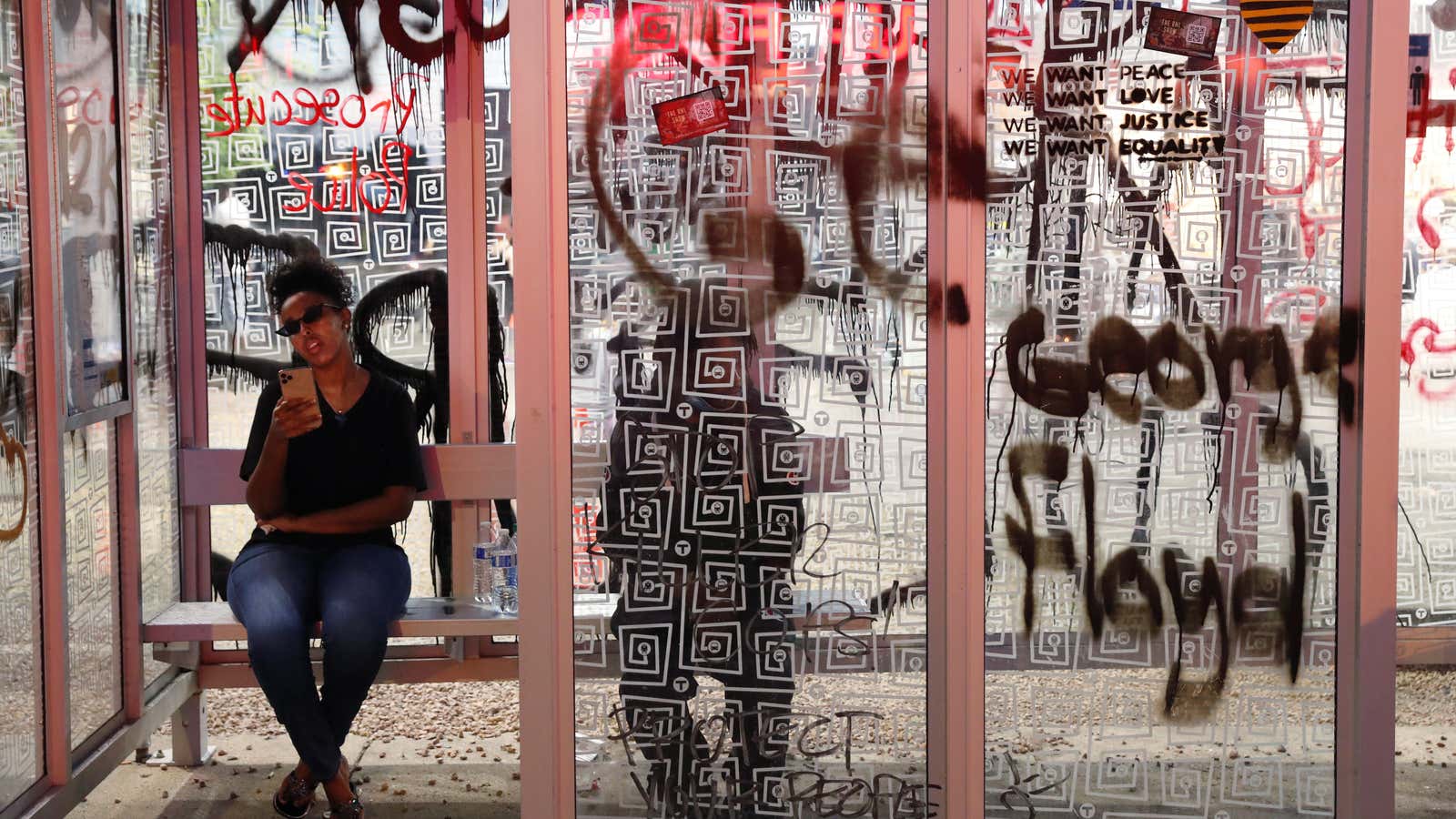In the past week, US protesters have staged large-scale demonstrations against racism and police brutality across all 50 states. Over the same period, daily US downloads of the encrypted messaging app Signal have tripled, according to data from the mobile app analytics firm SensorTower.
The spike in downloads coincides with calls from Twitter users and privacy-focused organizations like the Electronic Frontier Foundation, urging American protesters to communicate with each other with encrypted apps like Signal. Encryption jumbles the content of a message while it’s being transmitted from the sender to the recipient, allowing users to chat with less risk that their conversation will be intercepted and monitored by a third party.
“Clearly the increased use of Signal shows a response from protesters and the population at large as a defense mechanism, reacting to the evaporation of anonymity,” said Ilia Siatitsa, a lawyer and privacy advocate at the London-based non-profit Privacy International.
Authorities have flown drones over protests in several US cities, while Reuters reported that police have used facial recognition cameras and IMSI catchers, which intercept and read text messages, at protests in the US, UK, and Germany. BuzzFeed reported that the US Drug Enforcement Agency has been granted broad powers to “conduct covert surveillance” of protesters.
In recent years, protest organizers have turned to encrypted messaging to evade censorship and surveillance while sharing information about the times and locations of demonstrations. Lebanese protesters used WhatsApp, which also became a crucial source of information in Venezuela. During the Hong Kong protests, organizers favored Telegram, prompting authorities to respond by launching large-scale cyber attacks against against the messaging platform.
Signal’s rank among overall iOS App Store downloads jumped from 936 to 126 in the past week. “Increased rankings among overall apps and games is particularly impressive as it illustrates the growth in demand for private, encrypted messaging relative to other apps and games,” said Lexi Sydow, who analyzes mobile app trends for App Annie, in a statement.
Signal provides a greater degree of anonymity than some other popular messaging apps, because in addition to encrypting the content of messages, it doesn’t store metadata about who sent and received a message, when it was sent, and the location of the participants. Signal also includes a tool that makes it easy to blur out faces in photos exchanged through the app.
Other encrypted messaging apps record more metadata. WhatsApp keeps a record of who you’ve messaged and when you messaged them, while Telegram records information about when users are online that could be used to figure out who’s talking to who. Their US downloads have remained flat over the past week.
Signal and other encrypted messaging apps offer limited protections. If police have access to an unlocked phone, they can still read any messages on it that haven’t been deleted. And Siatitsa points out that law enforcement has other ways to identify and track protesters long after a demonstration has ended.
In 2015, an investigation from The Intercept revealed that the US Department of Homeland Security had been monitoring Black Lives Matter members via their social media posts for a year after they organized protests in Ferguson, Missouri over the police killing of Michael Brown.
